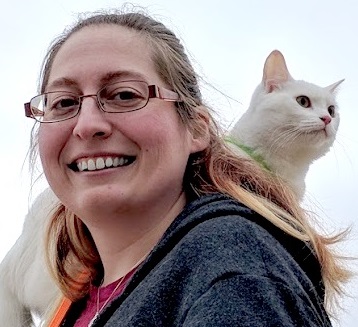Here is an article written by my cousin and fiction writer Reed Mingault. On her recent weekend visit, we had many deep conversations about writing. This one bubbled up one morning with a rush of inspiration and note taking. I am thrilled to share this here with you all.
💙- April

Words have power.
Phrases and assumptions seep into your brain. Your words (and the words of others) have power. The words that you write will seep into your readers’ brains. It may not be obvious, to them or to you. You may not even realize it.
As a writer, one of your most important jobs is to interrogate your assumptions. Your words and the why of them. More than just the surface level of what you read.
- What is your writing focusing on and glorifying?
- What do you often use as your default setting and location?
- What characters do you automatically create?
- Why?
- Does it have to be?
- Does that reflect reality? Both actual reality and the reality the characters exist in.
Let’s look at a literary example. Lord of the Rings was written in 1937 – 1949 by JRR Tolkien.
This epic series has huge battles, good vs. evil, armies, generals, and wizards. Yet over and over again Tolkien chooses to emphasize how the small ordinary kindness and goodness of Hobbits – not the King of Arnor and Gondor, not the Prince of Mirkwood or Lord of the Glittering Caves – how plain, ordinary hobbits triumph over evil.
“The Lord of the Rings has had a profound and wide-ranging impact on popular culture, beginning with its publication in the 1950s, but especially during the 1960s and 1970s, when young people embraced it as a countercultural saga.”
Wikipedia article
But if you look deeper there is also an emphasis on how an entire race of dark-skinned people (Orcs) are evil. Tolkien did not seem to question that assumption. (Or may have not known the bias was there or that he had it.)
Both of those values emphasized in his work coexist. Interrogate both.
What we believe (and our biases) show up in our work. Our environment and culture influences us. But as writers, we influence our environment and culture right back. This is not a power to be taken lightly. Write the change you want to see in the world.
Why are you writing about what you are writing about?
Question why you have written those characters as “the good guys” (or “the bad guys”).
What implications do those decisions make?
- Is your fantasy writing glorifying the division or the fighting?
- Are you questioning the values of why to fight?
- Is fighting necessary?
- Could you tell the story you want to tell in a different way?
- What are you focusing on and why?
“Within the infant rind of this small flower
Poison hath residence and medicine power.
For this, being smelt, with that part cheers each part;
Being tasted, stays all senses with the heart.
Two such opposèd kings encamp them still,
In man as well as herbs—grace and rude will. (2.3.23–28)”
– Shakespeare, “Romeo and Juliet”
As Shakespeare says, both medicine and poison can come from the same plant.
Another example. I heard this phrase, and it stuck with me:
“You don’t have to be afraid.”
This looks simple on the surface. But what is it telling you in the subtext?
- There are things to be afraid of – What? Why?
- Is that actually true or is that a way to shape your thoughts and attitudes?
If you are constantly bombarded with the language of victimization and persecution then you will subconsciously expect adversarialism everywhere. If you are looking for the people and powers against you will find it. Even when it objectively does not exist.
You will (subconsciously) react as though threatened. That reaction is from an assumption that must be interrogated.
Contrast that with the language of being loved, of community, and support. How can that change the assumptions, the reactions, the internal language of a person? Interrogate those differences.
Remember, equality looks like oppression to the privileged.
YOUR WORDS HAVE POWER.
More than you think. More than you intend.
Interrogate your language.
- What are your words? Why are your words?
- What is the subtext especially telling people who aren’t like you?
Interrogate your assumptions and defaults.
A writer’s superpower is their empathy. To put themselves and their readers in the shoes of those who are not like them. To engender empathy for the other. To help us love our neighbors and those you think of as enemies as ourselves.
Use this power wisely. Use it for good.
Keep writing. – Reed

Visit her author page to see what she is up to lately!
Author Bio: https://reedmingault.wordpress.com/
Photos by Christin Hume, micheile dot com, Parker Byrd, on Unsplash
